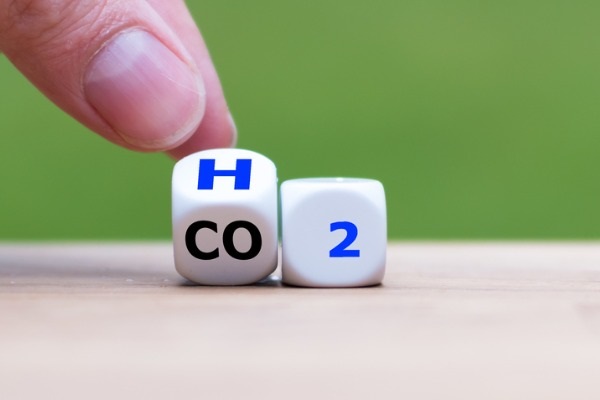ii view: why Johnson Matthey shares have sunk to 15-year low
Looking to play its part in global energy transition and trading on an attractive dividend yield. Buy, sell, or hold?
27th November 2024 11:41
by Keith Bowman from interactive investor

First-half results to 30 September
- Revenue down 14% to £5.63 billion
- Adjusted sales down 3% to £1.68 billion
- Adjusted operating profit down 4% to £156 million
- Interim dividend unchanged at 22p per share
- Net debt down 25% to£783 million
Chief executive Liam Condon said:
“We delivered a resilient performance - in line with our expectations - and have continued to execute on our strategy in the first half, against a challenging macroeconomic backdrop. Our performance was supported by our transformation programme which is progressing well. For the full year, we are maintaining guidance with our confidence in the second half underpinned by further transformation benefits.
“Johnson Matthey has an important role to play in the global transition to net zero and our portfolio means we are well positioned to adapt to the evolving pace of this transition.”
- Invest with ii: What is a Managed ISA? | Open a Managed ISA | Transfer an ISA
ii round-up:
Maker of products to reduce harmful emissions, Johnson Matthey (LSE:JMAT), today detailed profit that missed City expectations as consumers continued to switch to electric vehicles at a slower pace than previously hoped.
Total adjusted sales for the half-year to 30 September fell 3% to £1.68 billion, with profit at its Platinum-Group Metals (PGM) business falling a third to £51 million. PGM recycles metals from pollution reducing catalytic converters, with many consumers staying with fossil fuelled cars and not scrapping them. Currency adjusted group-wide profits fell 4% to £156 million compared with £179 million expected by analysts.
Shares in the FTSE 250 company fell 7% in UK trading having come into this latest news down 12% year-to-date. That’s similar to European car giant Mercedes-Benz Group AG (XETRA:MBG) and in contrast to a near 6% gain for the FTSE 250 index in 2024.
As well as making platinum filled catalytic converters, Johnson Matthey also recycles the metal, supplying other users and its itself, as well as making emission reduction systems for industries such as oil & gas and chemical makers.
Sales for catalytic converters or its Clean Air division fell 9% to £1.17 billion as global vehicle demand and production remained slow. Sales for Catalyst Technologies, supplying systems to industry gained 19% to £336 million and pushing divisional profit up 43% to £50 million.
Revenues for its Hydrogen Technologies dropped 46% to £20 million. Johnson makes components used in hydrogen fuel cell energy production. Lower demand following a slowdown in market development and customer de-stocking both impacted.
Group net debt fell by a quarter year-over-year to £783 million, helped by the previous sale of businesses including Battery Materials and Medical Device Components.
An interim dividend of 22p per share, to be paid on 4 February to eligible shareholders, is unchanged from a year ago.
ii view:
Started in 1817, Johnson Matthey today employs around 11,000 people. Clean Air, or catalytic converters accounted for most of its profit during this latest period at £121 million, followed by PGM at £51 million, and Catalyst Technologies at £50 million. Now sold businesses under a Value Businesses generated a profit of £2 million, with Hydrogen a loss of £26 million and corporate expenses of £42 million taken.
For investors, lower consumer demand for vehicles generally given high borrowing costs, and range anxiety for EV's is dampening automobile demand broadly. The volatility of PGM metal prices and its impact on profits should not be ignored. The small hydrogen business is loss-making and is not expected to breakeven until 2025/2026, while a previous sale of the battery materials and potentially high growth business was made given its relatively small size and high levels of competition.
- Sign up to our free newsletter for investment ideas, latest news and award-winning analysis
- Top 10 UK share tips with compelling valuations
- ii view: Tesla stock rockets on bullish 2025 outlook
On the upside, Catalyst Technology industry sales and profit rose during this latest period. Planned business sales are now complete, raising more money than management had originally hoped for. Cost saving initiatives are reaping rewards with £155 million made year-to-date and £200 million targeted this financial year, while global energy transition could yet see its Hydrogen business benefit.
In all, global energy transition uncertainty and falling profits during this latest period offer reason for caution, and enthusiasm for the shares has fallen sharply given concerns about the global economy. That said, a need for pollution reduction products is not going away, and a forecast dividend yield of around 5% arguably pays existing shareholders to remain patient.
Positives:
- Targeting cost cuts
- Hydrogen technology opportunities
Negatives:
- Expected demand fall for catalytic converters
- Subject to currency headwinds
The average rating of stock market analysts:
Strong hold
These articles are provided for information purposes only. Occasionally, an opinion about whether to buy or sell a specific investment may be provided by third parties. The content is not intended to be a personal recommendation to buy or sell any financial instrument or product, or to adopt any investment strategy as it is not provided based on an assessment of your investing knowledge and experience, your financial situation or your investment objectives. The value of your investments, and the income derived from them, may go down as well as up. You may not get back all the money that you invest. The investments referred to in this article may not be suitable for all investors, and if in doubt, an investor should seek advice from a qualified investment adviser.
Full performance can be found on the company or index summary page on the interactive investor website. Simply click on the company's or index name highlighted in the article.